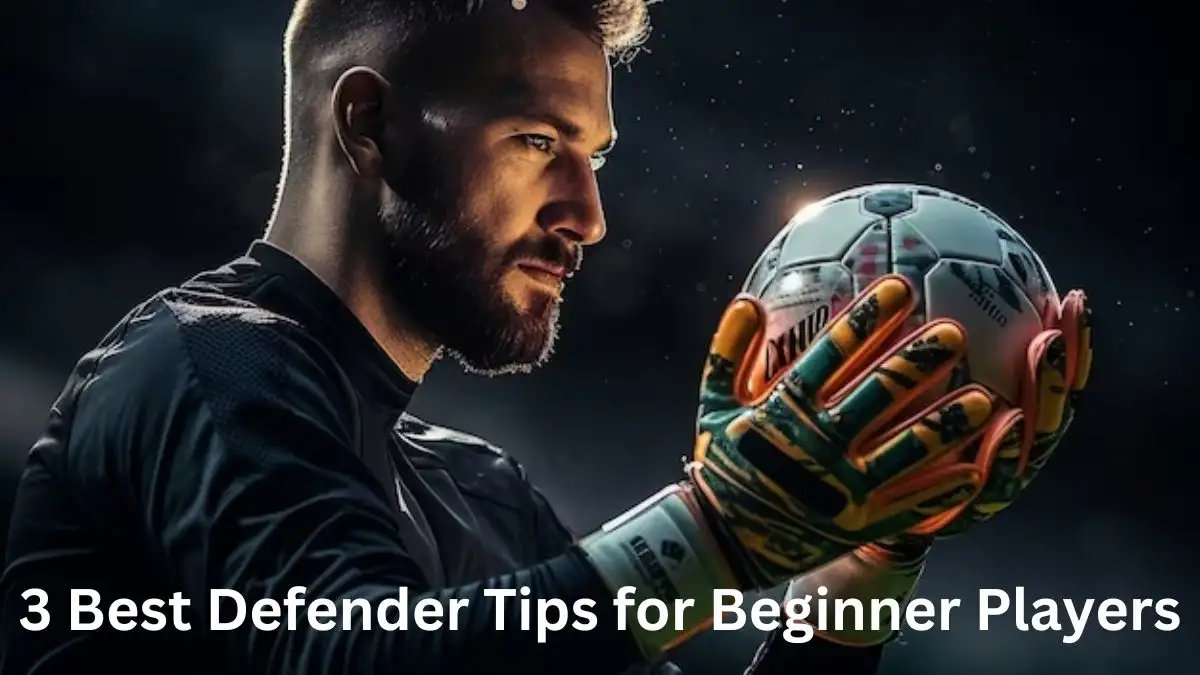3 Best Defender Tips for Beginner Players
by S Samayanka
Updated Feb 16, 2024

Defender
A defender in football is a player whose primary role is to prevent the opposing team from scoring goals. Defenders form the last line of defense in a team, positioned in front of the goalkeeper, and their main objective is to thwart attacks initiated by the opposing forwards and midfielders. They utilize a combination of physical attributes, tactical awareness, and technical skills to accomplish this task effectively.
Defenders are responsible for marking opposing players, intercepting passes, making tackles, and clearing the ball from dangerous areas. Additionally, they play a vital role in organizing the team's defensive structure, communicating with teammates to maintain proper positioning, and coordinating defensive movements to nullify the opposition's attacking threats.
In essence, defenders serve as the backbone of a team's defense, providing stability, resilience, and protection to ensure their team remains competitive and secure on the field.
3 Best Defender Tips for Beginner Players
Focus on Awareness:
Developing awareness is foundational for any aspiring defender. It involves constantly scanning the field, not just focusing on the ball, but also keeping tabs on opponents and teammates. By honing this skill, beginner defenders can anticipate plays before they unfold, positioning themselves to intercept passes, block shots, or support teammates in defensive maneuvers.
Awareness is like having a radar on the field, allowing defenders to stay one step ahead of the opposition and make split-second decisions that can thwart attacks and prevent goals.
Through consistent practice and mindful observation during games and drills, novice defenders can gradually sharpen their awareness, becoming more adept at reading the flow of play and reacting effectively to various situations.
Practice Effective Communication:
Communication is the glue that holds a defensive unit together. Beginner defenders should prioritize developing clear and concise communication skills on the field. This involves vocalizing instructions, such as marking opponents, shifting the defensive line, or signaling for cover, to ensure everyone is on the same page.
By communicating effectively, defenders can help organize the team's defense, maintain proper positioning, and minimize defensive errors such as leaving gaps or playing opponents onside. Moreover, effective communication fosters cohesion and teamwork, instilling confidence among players and fostering a collective sense of responsibility for defensive duties.
Through drills and game situations that emphasize communication, novice defenders can gradually enhance their verbal and non-verbal cues, laying the groundwork for strong defensive cohesion and coordination.
Work on Passing Skills:
In the modern game, defenders are expected to be proficient in passing, not just clearing the ball but also initiating attacks from the backline. Beginner defenders should dedicate time to improving their passing skills, both in terms of accuracy and decision-making.
This includes practicing various types of passes, such as long balls to switch play or short, crisp passes to maintain possession under pressure. By mastering passing techniques, defenders can contribute to building play from the defensive third, transitioning smoothly from defense to attack.
Additionally, good passing ability enables defenders to bypass opposition pressure, create numerical advantages in midfield, and launch quick counterattacks to catch opponents off guard. Through consistent practice and repetition of passing drills, novice defenders can refine their technique and develop the confidence to play a proactive role in their team's build-up play.
3 Best Defender Tips for Beginner Players - FAQs
To prevent the opposing team from scoring goals.
In front of the goalkeeper, forming the last line of defense.
Marking opposing players, intercepting passes, making tackles, and clearing the ball from dangerous areas.
It helps organize the team's defense, maintain proper positioning, and minimize defensive errors.
Passing skills, including accuracy and decision-making, to contribute to building attacks from the defensive third.





